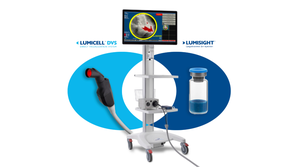A medtech expert explains how M&A strategy of large medical device companies has evolved recently.
June 15, 2015

In the last two or three years, the medtech industry has seen a lot of mergers and acquisitions activity.
First to mind, come the mega deals - Medtronic buying Covidien, Zimmer buying Biomet and Cardinal Health buying Cordis unit of Johnson & Johnson - all billion dollar plus deals.
And then there were mid size deals like Boston Scientific acquiring Bayer's interventional cardiology business and St. Jude Medical buying CardioMEMS. There were smaller deals as well and deals whose terms were not disclosed such as Medtronic acquiring Diabeter, a Dutch diabetes clinic and research outfit.
But what's common to all these deals is that they were all strategic, a major shift from M&A activity in the past believes Jonas Funk, managing director and partner at L.E.K. Consulting in Chicago.
"M&A opportunities in the past were not necessarily as strategic," Funk says in a recent interview. "It was focused on building out specific solutions. They might have been more [like] 'Hey this is an attractive growing area. Let’s get in on this.'"
While now M&A process is more reasoned, more thoughtful.
"[Now it's about] strategic acquisitions that fill portfolio gaps in a way that helps medtechs to offer more complete solutions," Funk explains. "Big medtechs that are at scale should look for ways to either own a certain disease area or a problem area that enables a company to ultimately offer as complete a solution as possible."
For instance, Becton Dickinson's acquisition of CareFusion for nearly $13 billion is evidence of this strategy in action, Funk says. Becton Dickinson has a lot of medication administration products - catheters and syringes - whereas CareFusion has infusion pumps and those often can work together, Funk says.
"So by buying CareFusion they were able to expand their medication administration portfolio and be in a better position to go to hospitals and talk about a medication administration solution," Funk explains.
Medtronic buying Diabeter, the Dutch clinic and diabetes research outfit for an unknown amount, marked Medtronic's foray into an integrated diabetes care model. Here Medtronic is laying claim the problem area of diabetes.
St. Jude's purchase of CardioMEMs also fits into the strategy of using novel technology to solve an intractable problem - how to prevent heart failure patients from seeking emergency care, the most expensive way to seek care? Hospitals are very eager to prevent heart failure-related readmissions to prevent getting penalized by Medicare.
CardioMEMs is an implantable device system, which collects monitors and measures pulmonary artery pressure remotely. Depending on worsening symptoms, physicians can intervene to take care heart failure patients before they come to the ER.
Medtronic is similarly driven to reduce heart failure related admissions and bought Cardiocom a few years ago that is a telemedicine, remote monitoring software and services company.
"[In the past large medtechs were] not necessarily trying to intentionally and strategically piece together solutions," Funk says. "Historically M&A was very product oriented, so buying other companies or buying other products to kind of fill a bag versus thinking about what are the different service M&A or partnership opportunities that could be acquired in [to the fold of the company]".
Arundhati Parmar is senior editor at MD+DI. Reach her at [email protected] and on Twitter @aparmarbb
You May Also Like


